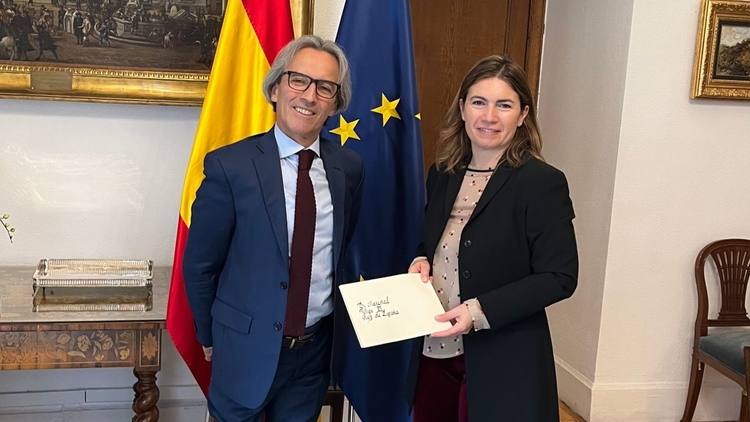The Diplomat
The Council of Ministers yesterday adopted the Royal Decree creating a Instituto Cervantes Centre in Seoul. The decision comes just one day before the official trip of the President of the Government, Pedro Sánchez, to South Korea, which will include a visit to the future headquarters of the institute in the South Korean capital, scheduled to open in 2023.
The new center in Seoul will be responsible for implementing the general policy of the Instituto Cervantes in the Republic of Korea “with the general objective of expanding its presence abroad in order to meet the needs detected and to promote the teaching, study and use of Spanish, as well as to disseminate Spanish culture” in the country, according to the government.
The new headquarters will replace the Aula Cervantes, located since April 2011 at Hankuk University of Foreign Studies, and will meet the growing demand for Spanish language learning in South Korea, the country with the most DELE exam candidates per capita in Asia. In addition to the DELE exams, the Aula Cervantes in the South Korean capital has developed an extensive program of academic and cultural activities in collaboration with other institutions.
This new center of the Instituto Cervantes in Seoul is created as a specialized technical body of the Diplomatic Mission. Therefore, it will report to the ambassador, to whom it will provide advice and technical support in the performance of its functions and in the development of the areas of external action. The expenses arising from the opening, installation and operation of the center created by this Royal Decree will be covered by the budget appropriations of the Instituto Cervantes allocated for this purpose.
In addition, the Council of Ministers yesterday authorized a voluntary contribution by the Instituto Cervantes to the EUNIC (EuropeanUnion National Institutes for Culture or European Union National Institutes for Culture) Cluster Project Fund, in the amount of 10,000 euros. Since 2013, EUNIC has been operating a program of financial support to its clusters (there are more than 130 spread across 80 countries) to facilitate the realization of joint projects between member organizations at the local level in line with their statutory and strategic objectives. The program is known as the Cluster Fund. The Instituto Cervantes has been a member of the EUNIC association since its foundation in 2006.







